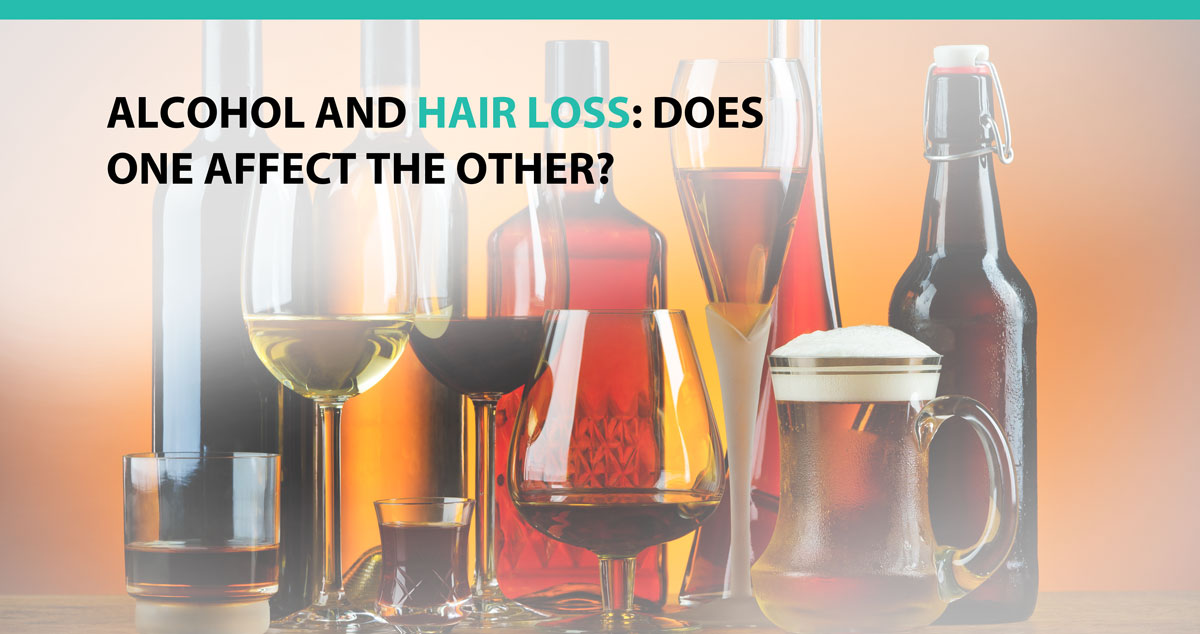
While moderate alcohol consumption helps you relax, chronic abuse can have various adverse consequences. Other than the nasty hangovers and dehydration, long-term effects include liver damage, hallucinations, fatigue, and stomach distress. While alcohol use is not a direct cause of hair loss, it plays a role in intensifying the situation.
How Alcohol Aggravates Hair Loss
Alcohol contributes to hair loss in the following ways:
- Dehydration
Since alcohol is a diuretic, it causes your body to expel more water and salt than it absorbs. Continued use and the accompanying dehydration lead to dry skin and brittle hair. This unhealthy scenario is more likely to result in breakage and thinning.
- Low mineral levels
Iron and zinc are two essential nutrients for hair growth. Iron deficiency can result in telogen effluvium. This condition causes more hair to enter a resting phase than the scalp can replace, leading to an overall deficit. The unusual hair growth cycle ultimately leads to hair loss. Zinc deficiency causes similar effects by weakening your hair’s protein structure and causing increased breakage.
- Liver issues
Your liver is responsible for several metabolic processes vital for hair growth. They include estrogen detoxification, blood sugar regulation, and vitamin uptake. Chronic alcohol abuse leads to liver disease, which interferes with these functions. Poor digestion adversely affects your hair by making it harder for your body to absorb vital nutrients.
- Acidity
An ideal pH level allows your body to function optimally. Fruits, vegetables, and other healthy foods have a positive alkaline effect, while alcohol, dairy, and red meat increase acidity. The body tries to restore pH balance by utilizing stored proteins. One of them is keratin, which is also essential for hair growth. By deploying it to reduce acidity, your hair lacks nourishment and contributes to hair loss.
Are All Alcohols Harmful To Your Hair?
You might already be familiar with the concept of good and bad alcohol. These utilize different chemicals with varying properties that can be good or bad for your skin and hair. For example, moderate consumption of beer might surprisingly benefit your hair. This type of alcohol contains silicon, a trace mineral that increases blood flow to your scalp.
One bottle of beer contains up to 10mg of silicon, which is enough to nourish your hair and nails. That means you don’t have to overindulge to enjoy the benefits. When it comes to their effects on hair, we have two broad classifications for alcohols:
Bad alcohols
Also known as short-chain alcohols, they have a drying affect on hair. They contain potentially harmful ingredients such as ethanol, benzyl, propanol, ethyl, and isopropyl.
Good alcohols
Long-chain alcohols are so-called because of their high carbon count per molecule. Also known as fatty alcohols, they’re a byproduct of palm oil, coconut oil, and other natural sources. Examples are lauryl, cetyl, stearyl, and cetearyl. Hair product manufacturers include these ingredients in formulations due to their moisturizing benefits. However, it’s not advisable to overuse them because your hair could become too greasy.
Fortunately, you can reverse alcohol-related hair loss by reducing your intake or quitting altogether. Other benefits include clearer skin, better sleep patterns, improved moods, and higher energy levels. Healthier hair is a direct result of better nutrient absorption, hydration, and lower stress levels.
Schedule Your Appointment Today
Advanced Medical Hair Institute specializes in the highest quality solutions. In addition to his vast experience and skills, Dr. Joseph Williams also implements cutting-edge procedures based on medical research. As our lead surgeon, he’s responsible for countless successful treatments. Our team also stays updated on the latest industry standards to guarantee the most accurate results. Please schedule a consultation today for natural-looking solutions to your hair problems.










